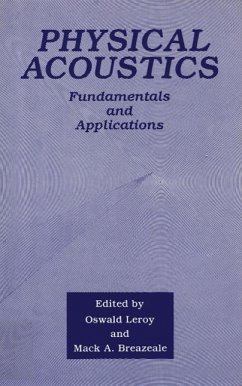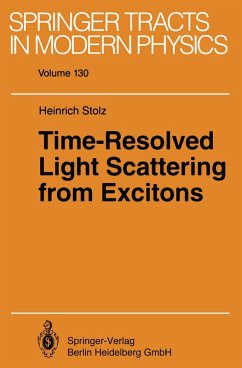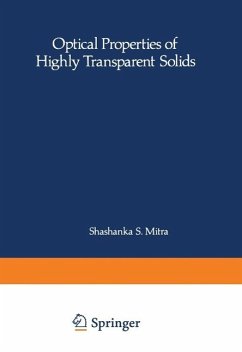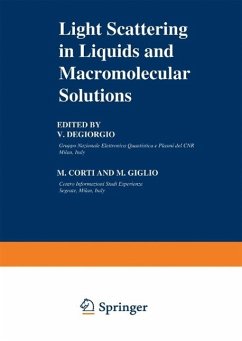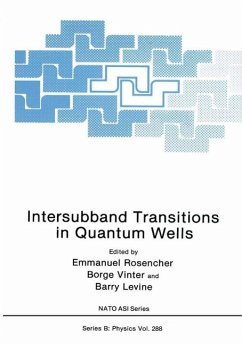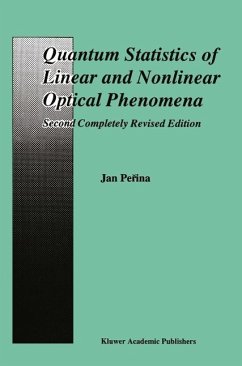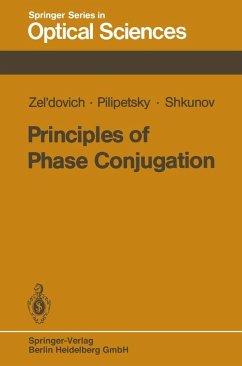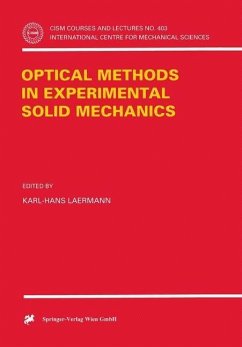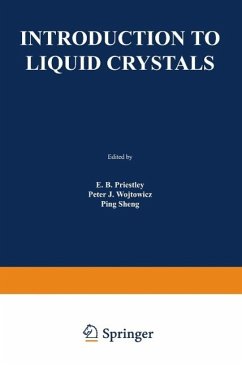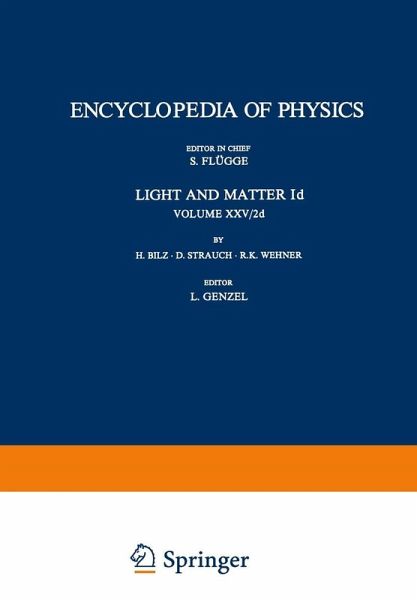
Light and Matter Id / Licht und Materie Id (eBook, PDF)
Infrared and Raman Spectra of Non-Metals
Redaktion: Genzel, L.
Versandkostenfrei!
Sofort per Download lieferbar
72,95 €
inkl. MwSt.
Weitere Ausgaben:

PAYBACK Punkte
36 °P sammeln!
The dynamical properties of solids have recently attracted renewed interest in connection with the increasing understanding of phase transitions and re lated phenomena. In particular, soft modes or, more generally, phonon 'anom alies' seem to play an important role in structural and electronic phase tran sitions, such as ferroelectric or superconducting transitions. The understanding of the mechanisms responsible for the occurrence of unusually low frequencies in phonon spectra requires a detailed analysis of the microscopic forces governing the lattice vibrations. Of particular importance is ...
The dynamical properties of solids have recently attracted renewed interest in connection with the increasing understanding of phase transitions and re lated phenomena. In particular, soft modes or, more generally, phonon 'anom alies' seem to play an important role in structural and electronic phase tran sitions, such as ferroelectric or superconducting transitions. The understanding of the mechanisms responsible for the occurrence of unusually low frequencies in phonon spectra requires a detailed analysis of the microscopic forces governing the lattice vibrations. Of particular importance is the influence of the electron lattice interaction in the adiabatic approximation which in many cases is the origin of peculiarities in the phonon self-energy. In this work the vibrational spectra of pure non-metals and of those con taining point defects are investigated. ' In these materials the interrelation be tween the pseudo-harmonic forces (determining the phonon dispersion re lations) and the non-linear anharmonic and electron-phonon forces (as they act in infrared and Raman spectra) is most obvious and can be quantitatively analysed in terms of appropriate models. The main task is to arrive at a physically correct treatment of electronic degrees of freedom, as for example in an electronic 'shell' model, which leads to the description of phonon spectra in terms of long-range polarizabilities and short-range deformabilities. The pur pose of our review is to stimulate further investigations which, we hope, will result in explicit relations between the parameters of the semi-microscopic models and the matrix elements from the electronic band structure.
Dieser Download kann aus rechtlichen Gründen nur mit Rechnungsadresse in A, B, BG, CY, CZ, D, DK, EW, E, FIN, F, GR, HR, H, IRL, I, LT, L, LR, M, NL, PL, P, R, S, SLO, SK ausgeliefert werden.



